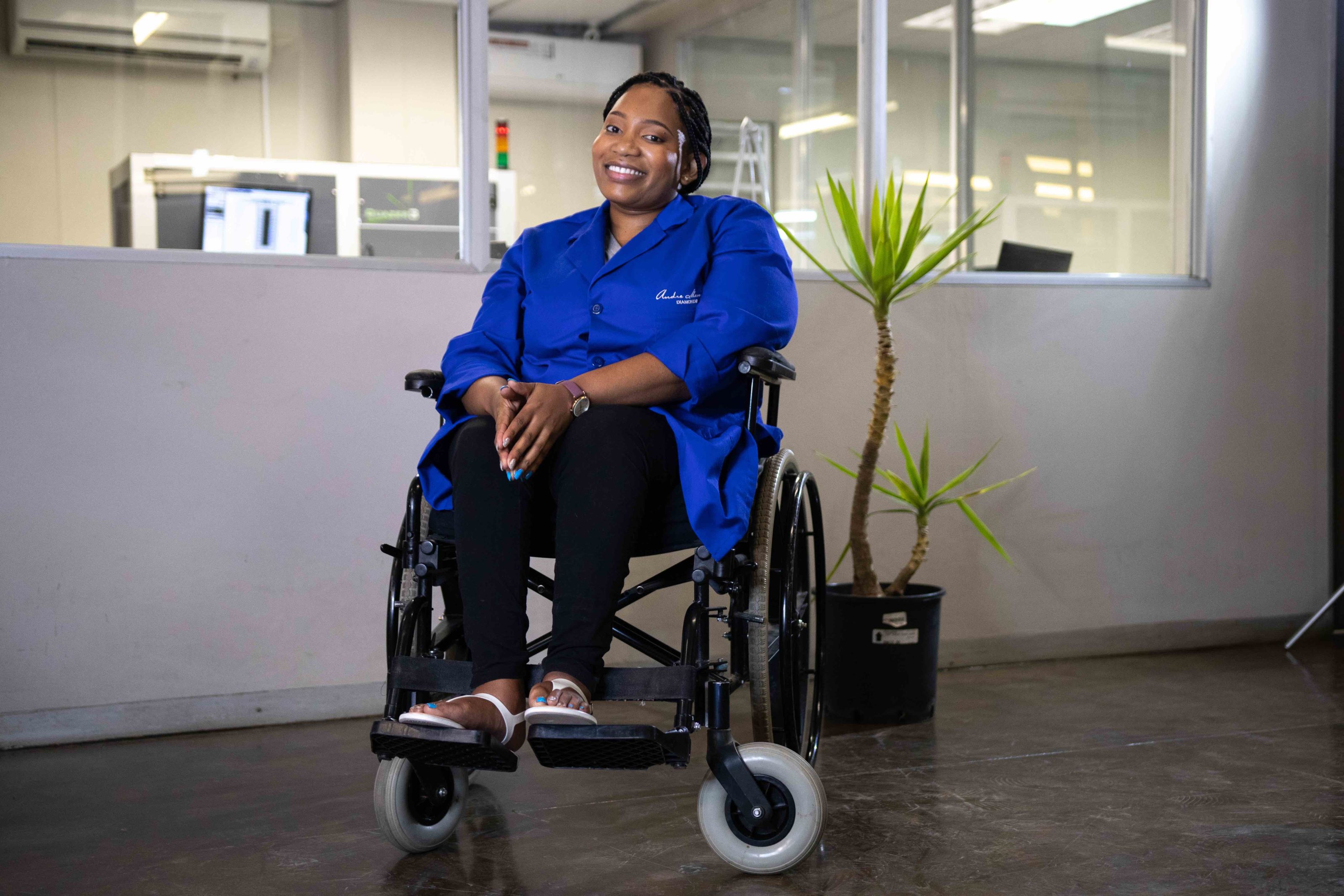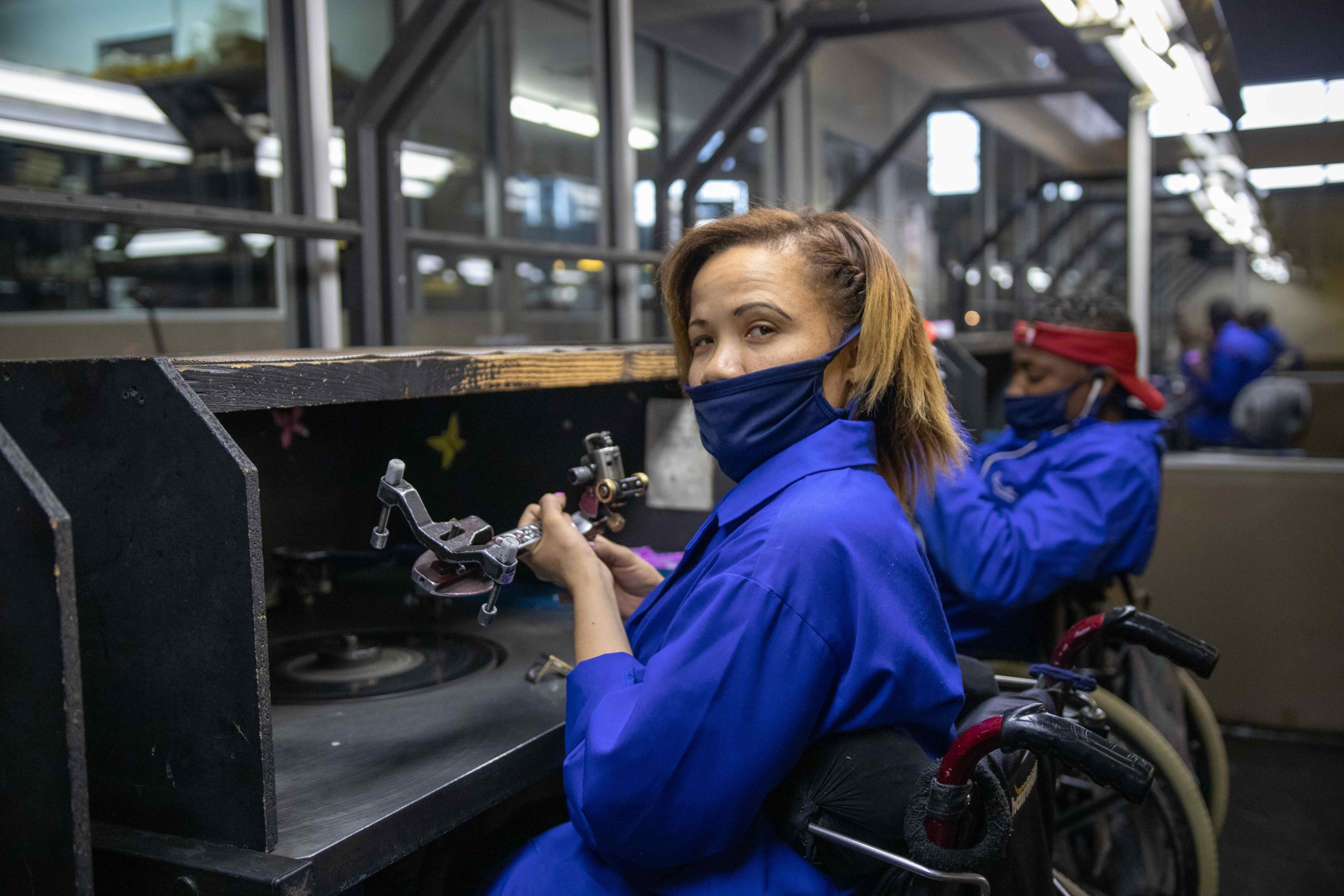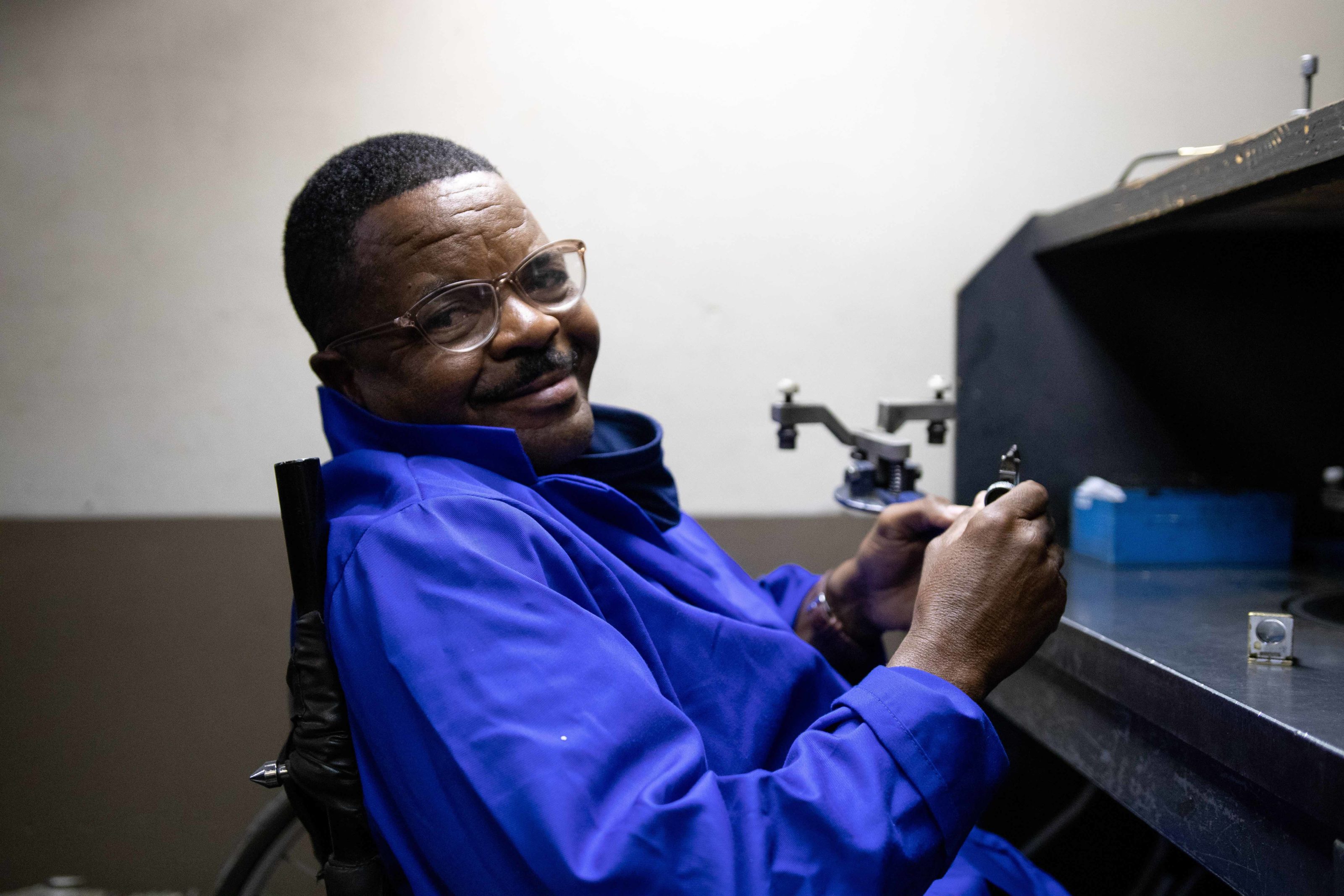Disability Does Not Denote Inability
How diversity and inclusion initiatives within the world of
diamonds are giving disabled Namibians a bright future.
The days of consumer ignorance are over. Today’s conscientious young jewelry buyers want to know where their diamond came from and be confident that on its way from mine to their hand, it left a positive trail in its wake. A significant purchase like a diamond, often loaded with emotional connotations, needs to be a feel-good investment that has benefited more than just the final owner. André Messika cutting and polishing facility is a shining example of how diamonds can do good and enrich the lives of those involved in its journey from rough to final cut diamond.
At the diamond-cutting center in Windhoek, Namibia, facet-by-facet some of the most disadvantaged citizens of this African country are shaping out a professional career for themselves. The company is the biggest employer of disabled people in the country, which amount to 100,000 people of its population of just over 2 million. With high levels of unemployment in Namibia, it is particularly difficult for disabled people to find work.

Diamond cutter Anna Marie Johnson was paralyzed at the age of eight. Reliant on a wheelchair, she missed out on completing her education because of the stigma surrounding her challenging situation.
“When I was taken out of school in Grade 8, my dreams stopped,” says Anna Marie. “This is the end, I thought, there is nothing I can do, because who would employ a wheelchair girl who is disabled and not even educated.”
Anna Marie was one of the first recruits trained to become a professional diamond cutter and polisher, educated to operate at the highest international standards. She went through two years of training to achieve this standard in a profession that requires focus and physical stamina as well as a natural intuition.
“Finishing a stone is my biggest joy,” says Anna Marie. “What I really like about our company is that they showed me that my disability is not an inability.”
The project began in 2007 when Schachter & Namdar – founding partner of the André Messika facility – first set up operations in Namibia.

Marc Friedman, operations director of the company, was in charge of setting up the new facility in Windhoek. The company was looking for a social responsibility project that truly gave back to society.
“Where we operate, we try to create a social responsibility project, and for us it’s not just giving a cheque and that’s it,” explains Marc. “It’s about a longer term commitment that we see every day.’
In 2009 they decided to concentrate on employing disabled people and started by hiring a sign language specialist who they trained to cut and polish diamonds. By 2011 the first hearing-impaired recruits joined and were trained by the sign language specialist.
“We soon realized it was a win-win situation,” says Marc. “We decided to bring in wheelchair users. But first we had to adapt the factory to make the facility and machinery accessible and in 2011 our first wheelchair-using staff arrived. The beauty of this project is that we see it every day of our lives as we watch our staff grow and prosper.”
And it turns out what’s good for society is also good for business.

“We are not a charity and what we do helps our bottom line and at the same time gives a profession to those who have never had a job in their life,” says Marc. Today the firm employs 43 diamond cutters, 28 of whom are hearing impaired and eight wheelchair-bound polishers.
The diamantaire André Messika, a veteran of the diamond industry and father of Valerie Messika, recognized the value of what Schachter & Namdar was doing partnered with them.
“As the source of diamonds, Africa has always been very important to me and I always wanted to give something back in Africa,” says André. He worked his way up from a delivery boy for one of the largest diamond dealers in Paris, and next year will celebrate the 50th anniversary of his own business.
“I have a handicapped child myself and I am always looking at how to help handicapped people which is why I was attracted to this project. We are very proud of what we are achieving in Namibia, but it is just the beginning and we hope to do more to benefit this country and its people.’’
